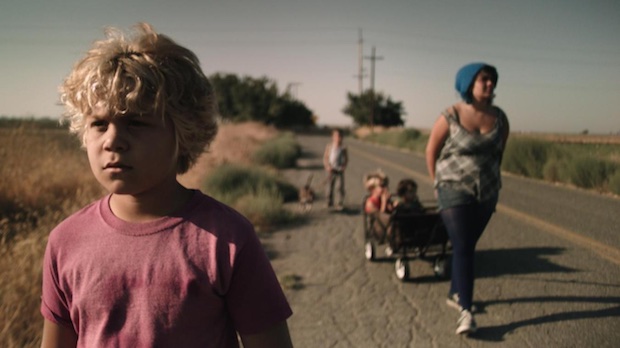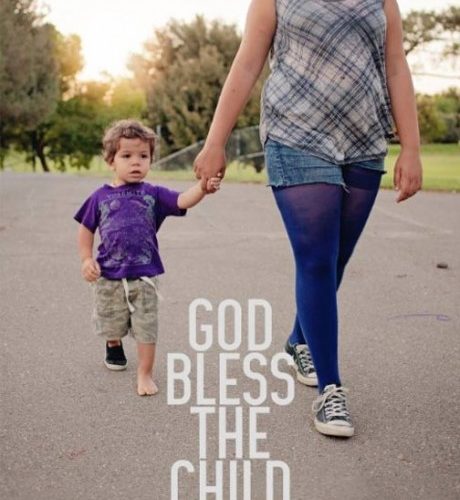While the state of Maryland debates the difference between absentee and free-range parenting, God Bless the Child, directed by Robert Machoian and Rodrigo Ojeda-Beck, arrives on the festival scene as a haunting ethnography of early suburban childhood. With an intended level of discomfort we follow a 13-year old Harper who is left alone to raise her four brothers as multiple fathers are hinted at and their mother leaves despite confusion from the family.
Meticulously lensed in a restrained color palette recalling super 16mm and the immediacy of Charles Burnett’s Killer of Sheep, God Bless the Child watches with intense curiosity as the boys – Jonah, Arri, Ezra, and Elias — run wild and Harper becomes a de facto mother. Harper does what she can with limited resources and knowledge, bathing the youngest, Jonah, in the kitchen sink while the older boys box each other, wash the dog, and dance to Soulja Boy, modeling behaviors observed on television. In an early harrowing moment a boy climbs on the roof, unsupervised, while his neighbor encourages him to get down.

The act of making this picture (with Machoian’s own children) is quite brave as the sense of detached danger is felt in every frame. While the rhythms of the picture, including many long takes often consisting of a screaming child, are occasionally intentionally maddening, the film contains a certain wonder. Machoian and Ojeda-Beck have made a family that’s narratively sparse without the absence of awe, particularly in an extended sequence where the family leaves the house for a natural park and we follow the boys as they run free.
At least from the perspective of a chronically depressed mother, the home is hell, but it doesn’t seem to phase the boys, yet it continues to take a toll of Harper. In one sequence Harper interacts with teens at a skate park, free from the baggage of her home life. The house, while unkempt, suggests the family is middle-class as they seem to reside in a nice neighborhood suggesting this story can take place anywhere.
Immersive in its captivating ethnographic approach, the largely improvised film is free from a standard narrative and resides mostly in the vein of a nature documentary. With a raw quality, Jonah, Arri, Ezra, and Elias have not developed certain language skills that trained kid actors would have. The film manages to leave a haunting impression despite its moments of genuine on-screen joy. While the free-range parenting movement seeks to instill a sense of responsibility via independence, encouraging them to take measured risks (as seen in Erin Davis’ The Land, a short subject documentary about a Welsh adventure playground), God Bless the Child remains non-judgmental, presenting the material as a matter of fact. Recalling Andrea Arnold’s short WASP minus a climax and a mom, God Bless The Child, like Boyhood, contains a multitude of dangerous situations that thankfully for all involved don’t quite pay off. Captivating even if it somewhat overstays its welcome, God Bless the Child is exhilarating in its minimalism.
God Bless the Child screened at the Montclair Film Festival and is seeking distribution.

